Our 2017-2018 Boren Fellows
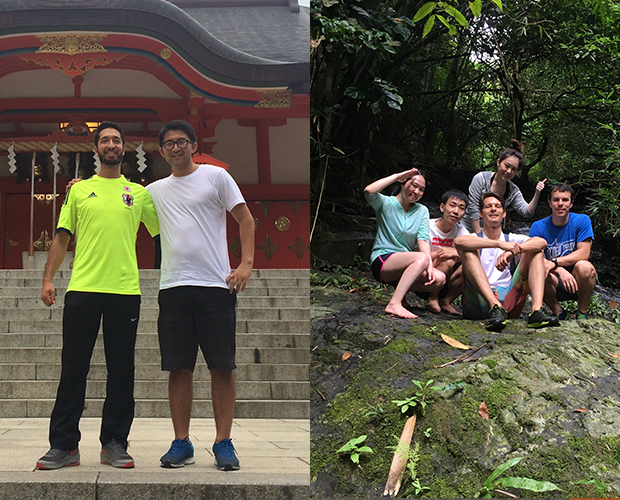
Two students working abroad pen their experience and discuss how GPS prepared them to be the next generation of global leaders
Dec. 13, 2017 | By Rachel Hommel | GPS News
An initiative of the National Security Education Program, Boren Fellowships provide unique funding opportunities for graduate students who wish to work in the federal national security arena, studying languages in world regions critical to U.S. interests, including Africa, Asia, Central and Eastern Europe, Eurasia, Latin America and the Middle East.
This year, six students from the UC San Diego School of Global Policy and Strategy (GPS) accepted the fellowship. The program provides fellows with funding for research and language studies abroad. In exchange, Boren fellows commit to working in the federal government for at least one year after graduation.
Here’s how two students intend to leverage their time abroad to reach their career goals, plus how GPS prepared them to do so.
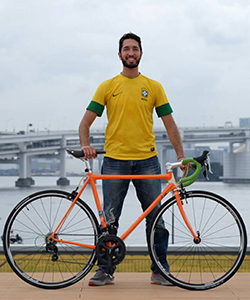 Juan Pablo Feregrino, MIA ‘19
Juan Pablo Feregrino, MIA ‘19
A drive for diplomacy and international management in Japan
My reason for applying to graduate school and the Boren Fellowship is the same, to become a diplomat. I previously studied abroad in Brazil while an undergraduate at UC Berkeley. Along with becoming fluent in Portuguese, the experience made me aware of the close connection the country has with Japan. Over one million Japanese-Brazilians reside in Brazil. Interacting with these individuals sparked my interest in Asia and particularly Japan as my next target. The Boren Fellowship was the perfect way to turn this interest into something tangible.
Currently, my sole focus is on Japanese language acquisition. At GPS, my focus is on Japan and international management. I hope to combine both while working at the U.S. embassy in Tokyo or a neighboring country.
Living abroad is an everyday challenge that reaps its fruit with every human interaction – on the street, in an office, helping a stranger and with language teachers. Even in the capital, Japan remains a relatively homogenous country. Anytime I am able to blend in with the crowd, or make someone forget they are speaking to a foreigner, is a small victory that reinforces my decision to live abroad. It also fuels my language studies and drive to become a diplomat.
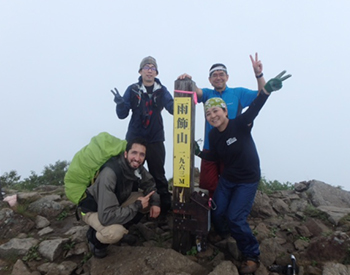 During my first year at GPS, I took Japanese language and classes pertaining to the Japanese way of doing business. This training has enabled me to better understand cultural subtleties and explore deeper conversations that would otherwise not be possible.
During my first year at GPS, I took Japanese language and classes pertaining to the Japanese way of doing business. This training has enabled me to better understand cultural subtleties and explore deeper conversations that would otherwise not be possible.
While language acquisition is no doubt valuable within a diplomatic career, deepening my interpersonal skills is something that has and will continue to benefit me at GPS and throughout my career. This includes the ability to cultivate lasting friendships across languages and cultural barriers and think in a different way than my own.
At GPS, and within my career, working with others is unavoidable and therefore something I am cultivating vigorously while abroad.
Peter Telaroli, MIA ’18
Immersion in Thai culture alongside real-world energy policy applications
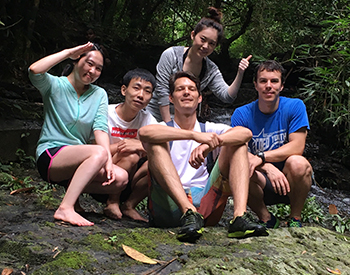 I chose to apply for the fellowship due to my interest in gaining a deeper understanding of the Thai language as well as policy and development in Thailand and around Southeast Asia. Having worked in Thailand, it’s exciting to be able to study Thai full-time, conduct research on Thailand’s energy policy and engage with colleagues about hot topics in the region.
I chose to apply for the fellowship due to my interest in gaining a deeper understanding of the Thai language as well as policy and development in Thailand and around Southeast Asia. Having worked in Thailand, it’s exciting to be able to study Thai full-time, conduct research on Thailand’s energy policy and engage with colleagues about hot topics in the region.
I’m studying at Chulalongkorn University in Bangkok, and I’ve had the opportunity to conduct research on energy policy and the environment at the Thailand Development Research Institute (TDRI). My degree at GPS focuses on Southeast Asia, international development and the environment, so my studies and research here are a natural progression from what I am learning at school.
Anytime I’m living abroad there is an opportunity to learn about myself and where I can best use the skills I’ve learned. My internship is an opportunity to research and learn from some of the most adept Thai researchers, and my studies at Chulalongkorn offer a situation where I can immerse myself into a different culture and see the world in different ways. The ability to continually learn new things about myself while living abroad is something I will always appreciate.
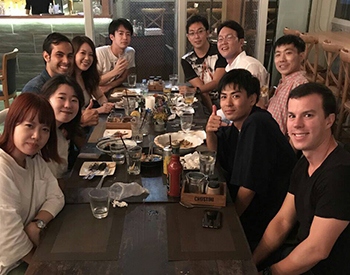 GPS gave me the time to learn the quantitative skills and regional knowledge to feel comfortable living, studying and researching in Southeast Asia. From courses that taught me to analyze data correctly and utilize tools such as Stata, GIS and Google Earth Engine, GPS prepared me to analyze information and think critically about important problems the world faces. In addition, the program’s regional focus has allowed me to better put Thailand’s policies in context regionally.
GPS gave me the time to learn the quantitative skills and regional knowledge to feel comfortable living, studying and researching in Southeast Asia. From courses that taught me to analyze data correctly and utilize tools such as Stata, GIS and Google Earth Engine, GPS prepared me to analyze information and think critically about important problems the world faces. In addition, the program’s regional focus has allowed me to better put Thailand’s policies in context regionally.
Living abroad, I’ve been able to cultivate skills that I’ll use for the rest of my working career. From learning how to work appropriately in a different culture to understanding better how to analyze policy, I’ve used this experience to build skills that will serve me beyond my time at GPS. I’ve also broadened my knowledge of Thailand and Southeast Asia and have improved my knowledge of data analysis.
Other 2017-18 Boren Fellows include:
- Samuel Huang, MIA ‘19
- Jordan Marks, MIA ‘18
- Michael Schwab-Holler, MIA ‘19
- Alexander Webb, MIA ‘19
The students’ responses included here have been shortened and edited lightly.

